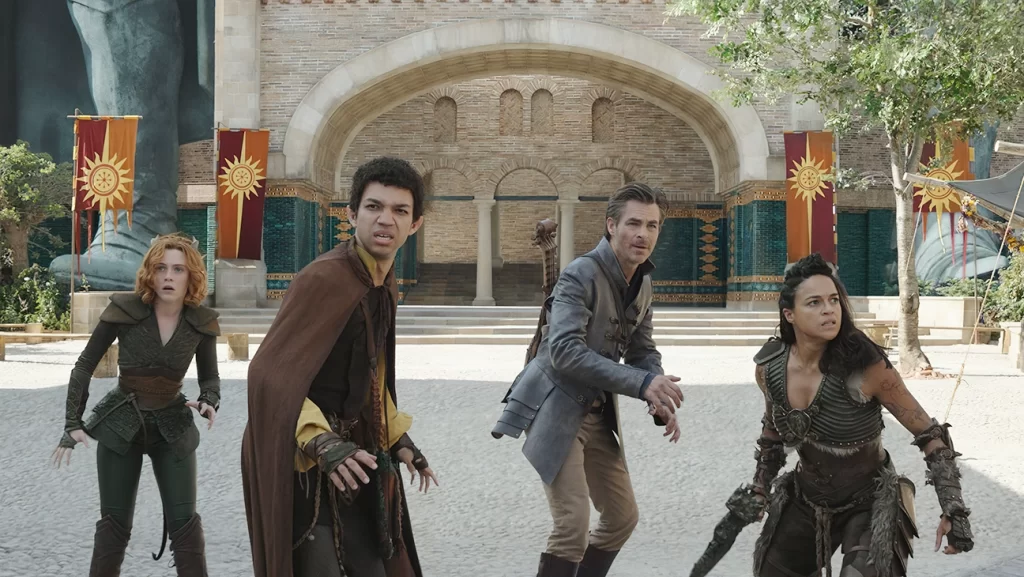
The key to a successful Dungeons & Dragons campaign, as I understand it—my knowledge derives not from personal experience, but from pop-cultural representations in shows like Stranger Things, Freaks and Geeks, and Community—is the careful blend of imagination, collaboration, and luck. Honor Among Thieves, the new wannabe D&D franchise-starter directed by Jonathan Goldstein and John Francis Daley (who also wrote the screenplay with Michael Gilio), possesses each of these qualities in moderate measure, as though it’s distributing a maximum allotment of points across various attributes. It’s mildly creative, a little fortunate (in the current environment, a non-superhero fantasy epic feels positively refreshing), and boisterously cooperative. It is the last of these traits which rescues it from the crowded bucket of corporatized slop, turning yet another soulless IP extension into a passable diversion.
If that sounds like faint praise, remember that we’re talking about a big-screen adaptation of a fucking board game. Yet the pleasure of RPGs lies in their facility for assembling friends around a table (Daley got his acting start playing one of the nerdy gamers on Freaks and Geeks), so it’s fitting that this Dungeons & Dragons functions as an ensemble heist picture. Sure, there are presumed easter eggs in the form of fancy artifacts, mighty creatures, powerful enchantments, and exotic locations. (As the title promises, we begin in a dungeon before eventually meeting multiple dragons.) But most important, there is a motley gang of roguish outlaws, banding together to accomplish a common purpose.
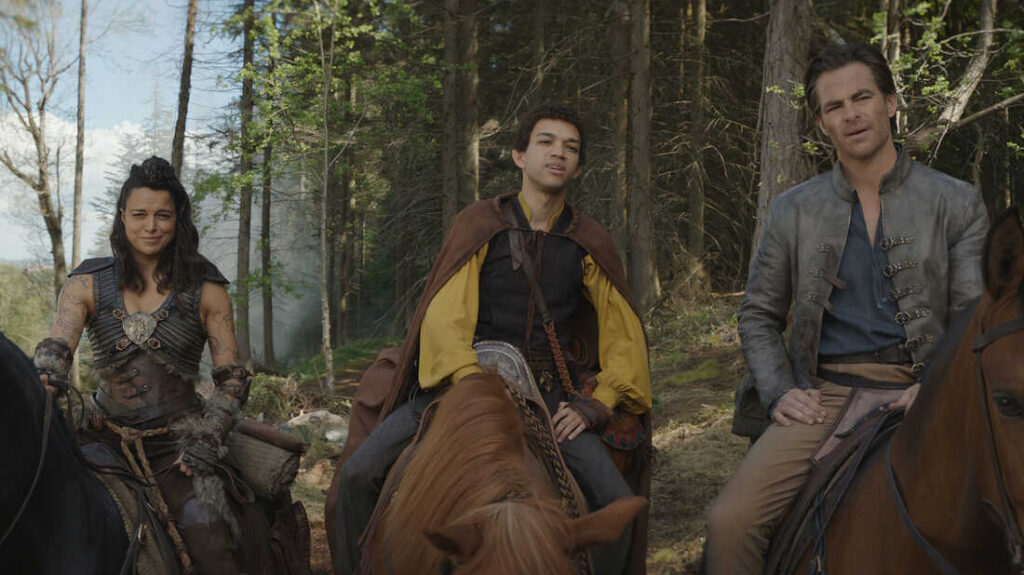
About which, I can only reveal so much—not because I’m mindful of hoarding the story’s precious secrets, but because I can scarcely understand the cockamamie plot. At one point, the scrappy thieves scramble to break into a highly secured vault (it’s shielded by runes, you see), and I confess that I forgot what they were searching for or why they were there. But in movies like this, the what and the why are less significant than the who and the how, and if Dungeons & Dragons has the brazenness to transform a child’s leisure activity into a four-quadrant blockbuster, it at least has the decency to do so with an appealing cast and a plucky spirit.
Not that Goldstein and Daley, whose previous feature was the solid action-comedy Game Night, prove especially skilled when it comes to choreographing sequences of large-scale mayhem. Shot in Northern Ireland but mostly transpiring in a generic Fantasyville (green-screened palaces, sludgy caverns), the movie makes dispiritingly heavy use of CGI, turning mythical beasts into weightless apparitions. And for all of its putative emphasis on subterfuge and sleight of hand, the chaotic climax still revolves around ill-defined spell-casting, the magical combatants summoning beams of light and storms of energy that have no grounding in the physical world.
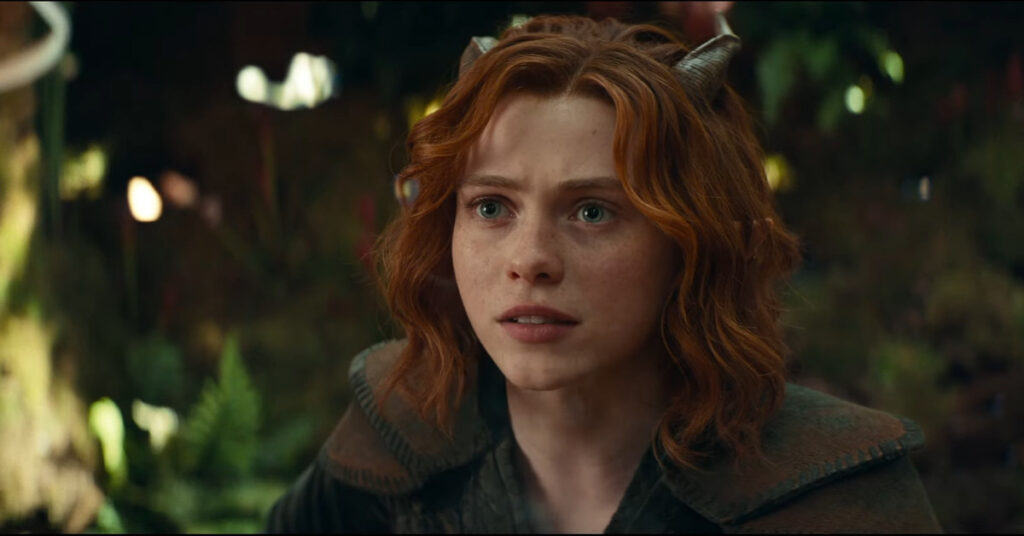
At times, however, the filmmakers tether the vast potential of special effects to the restless invention of youthful make-believe. The movie’s sleekest set piece finds a shape-shifting druid named Doric (Sophia Lillis) escaping from a castle by transfiguring herself into various animals, the camera tracking her flight in a fluid (and presumably faux) long take. There is also a clever device called a hither-thither portal, which allows people to teleport from one area to another by crawling through a paranormal circle, and which generates ample opportunities for playful staging and physical comedy.
And comedy is what Goldstein and Daley do best (their screenwriting credits include Horrible Bosses, as well as the jokey Spider-Man: Homecoming), in part by leveraging the talents of their immensely likable cast, all of whom receive plenty of zingers. Our lawbreaking heroes here are Edgin (a splendid Chris Pine) and Holga (Michelle Rodriguez, steady), a brains-and-brawn duo who, for complex and irrelevant reasons, find themselves at odds with a conniving lord (an indispensable Hugh Grant) and his blandly evil wizard (Daisy Head). Following their prison break—which incorporates the requisite backstory with admirable economy, and which is punctuated with an inspired dash of desperation—they must recover a sacred relic, which naturally requires them to recruit other well-meaning miscreants. In addition to Doric, they reunite with a middling sorcerer named Simon (Justice Smith), whose ruinous lack of confidence forms one of the script’s more threadbare subplots. (Speaking of which: Blockbuster filmmaking is now so sexless, what passes for romance here is a runner in which Simon repeatedly urges Doric to consider the possibility of dating him; for their part, Edgin and Holga swiftly dispel any possibility of attraction, preferring to operate as comic besties.) They also encounter Xenk (Regé-Jean Page), a glamorous warrior who speaks in pseudo-profundities and whose inability to grasp sarcasm recalls Dave Bautista’s brawler from the Guardians of the Galaxy pictures.
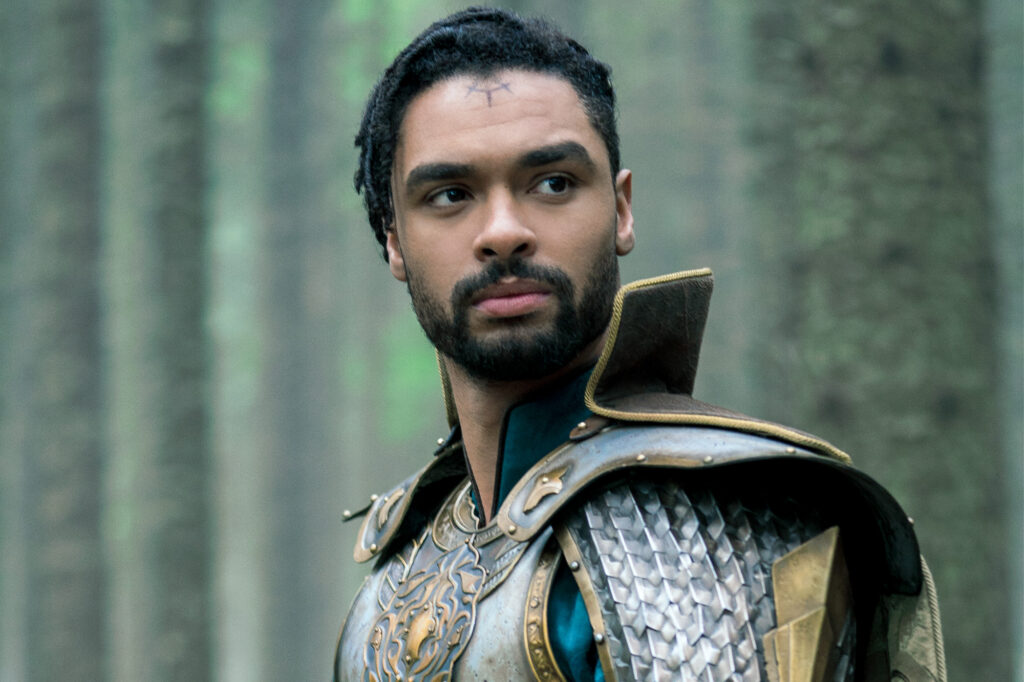
What follows is narratively predictable, visually typical, and weirdly enjoyable. The various quests that the characters embark on may be secondhand, but they unfold with an amiability that’s infectious. If D&D relies in part on teamwork, heist movies hinge heavily on chemistry, and the actors here evince the convincing impression that they appreciate one another’s company. Their camaraderie is most evident during a delightful sequence set in a graveyard in which the thieves, seeking a mystical helm (so many artifacts!), must resurrect and question numerous corpses, each of whose responses are unhelpful or incomplete. It’s sharply written and crisply edited—a reminder that in these sorts of films, the journey is invariably more entertaining than the destination.
At the center of that sequence, and of the movie, is Pine. “What do you bring to the table?” Doric asks Edgin, again recalling the attribute-centric nature of RPGs. The question answers itself many times over. A soulful dramatic actor, Pine is arguably slumming it here, but as he’s shown in franchise features like Star Trek and Wonder Woman, he refuses to phone things in, instead fully engaging with the material and wielding his inherent charm just as deftly as Rodriguez swings a battle-axe.
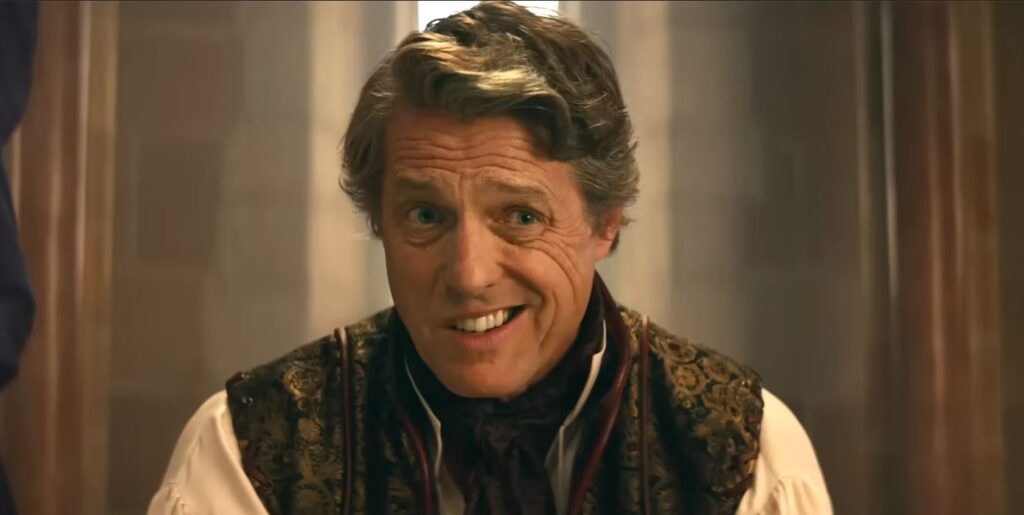
Pine’s deceptively tricky balancing act—being persistently insouciant without lapsing into condescending snark—is what helps make Dungeons & Dragons so likable. If Hollywood insists on relentlessly churning every existing piece of intellectual property into merchandised entertainment, it should at least supply some genuine fun in the process. Turning a dorky basement pastime into a mildly entertaining movie seems improbable on its face, but that’s the thing with board games: Every so often, you get a lucky roll of the dice.
Grade: B-
Jeremy Beck is the editor-in-chief of MovieManifesto. He watches more movies and television than he probably should.
